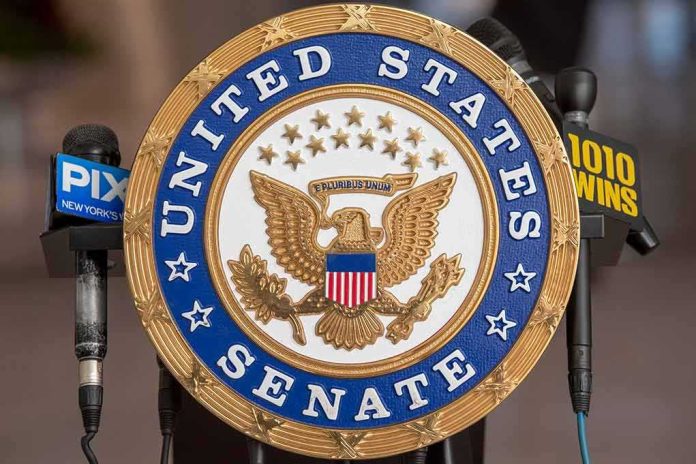
In a political landscape where ideological labels can define careers, a Maine Senate candidate’s past self-identification as a ‘communist’ has set off a storm of controversy.
Story Overview
- Graham Platner’s self-identification as a ‘communist’ in Reddit posts has stirred controversy.
- The Democratic National Committee (DNC) is weighing the impact on party unity and image.
- This situation highlights the tension between progressive and centrist factions within the Democratic Party.
- The controversy may affect the Maine Senate race and broader party strategy.
Graham Platner’s Controversial Reddit Comments
Graham Platner, a rising candidate for the Maine Senate, faces scrutiny after past Reddit comments surfaced in which he described himself as a ‘communist.’ These revelations, reported by NBC News in October 2025, have put Platner’s campaign under the microscope. The timing is critical, as the 2025 election cycle approaches and the Democratic Party seeks to maintain a unified front. Platner’s comments have drawn a mixed response, with some viewing them as a bold declaration of authenticity and others as a potential liability.
The Democratic National Committee (DNC), led by Chair Ken Martin, has publicly acknowledged the situation, signaling possible intervention. These developments have ignited a broader conversation about ideological diversity within the Democratic Party. The controversy underscores the challenge of balancing progressive ideals with the need to appeal to a broad voter base, particularly in a state like Maine, known for its mix of moderate, independent, and progressive voters.
Historical Context and Political Implications
The label ‘communist’ carries significant historical weight in American politics, often conjuring images of Cold War-era paranoia and McCarthyism. Despite the stigma, younger voters are increasingly open to socialist and leftist ideas, as evidenced by figures like Alexandria Ocasio-Cortez and Bernie Sanders. However, explicit identification with communism remains rare, making Platner’s comments particularly contentious. This episode highlights the evolving nature of political discourse, where past statements on social media can resurface and impact current campaigns.
The situation in Maine reflects broader ideological tensions within the Democratic Party. Progressive activists may defend Platner’s ideological openness, arguing for a more inclusive party that embraces diverse viewpoints. Meanwhile, party officials and centrist commentators may view the controversy as a distraction that could hinder electoral prospects. The DNC’s response will be crucial in determining the party’s approach to candidate vetting and ideological diversity moving forward.
— Graham Platner for Senate (@grahamformaine) October 17, 2025
Implications for the Democratic Party and Beyond
In the short term, Platner faces increased scrutiny from both the media and the Democratic Party. The controversy could lead to party distancing or intervention, as the DNC seeks to ensure that candidates align with the party’s broader goals. In the long term, this incident may influence the Democratic Party’s candidate vetting processes, shaping the dynamics of the Maine Senate race and contributing to the national discourse on ideological diversity. The controversy may also set a precedent for how parties handle candidates with controversial ideological backgrounds.
Beyond the immediate political implications, the controversy raises important questions about the role of ideological labels in American politics. As the Democratic Party grapples with internal divisions, the response to Platner’s comments will be a litmus test for how the party navigates the complex landscape of modern political identity. This situation underscores the importance of transparency and accountability in political campaigns, as voters and party officials alike seek to understand the motivations and beliefs of those who aspire to public office.







